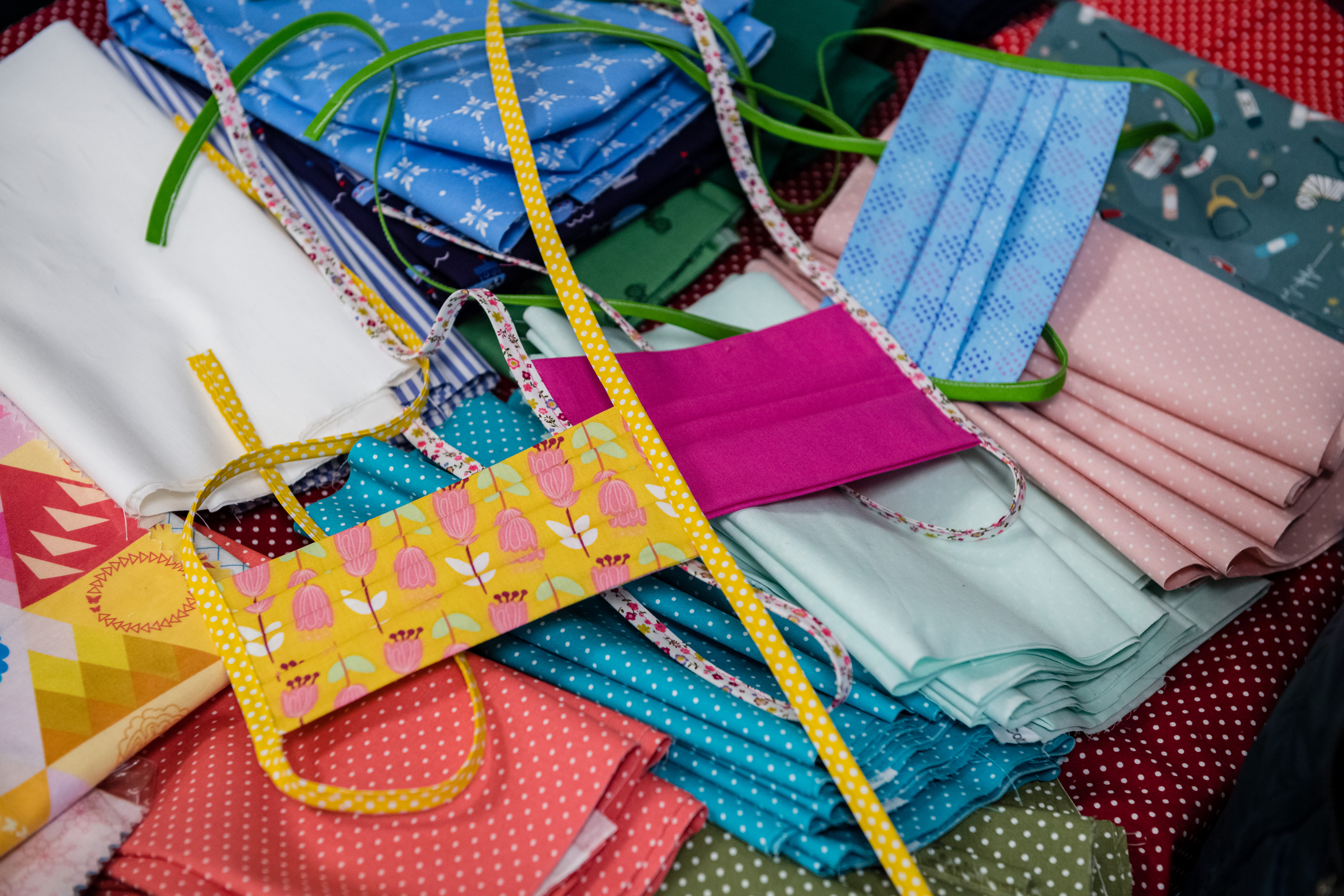California plans to spend nearly $1 billion to buy up to 200 million masks each month to boost its stockpile of protective gear during the COVID-19 outbreak, an eye-popping figure meant to turn the state into a distributor of medical equipment for other Western states struggling with supply shortages.
Gov. Gavin Newsom made the announcement on Rachel Maddow’s MSNBC show Tuesday night. On Wednesday, Newsom announced the state had its largest daily increase of COVID-19 deaths with 68.
“As a nation-state with a capacity to write a check for hundreds of millions — no, billions of dollars — we are in a position to do something bold and big that could be a catalyst to increase supply,” Newsom said.
State officials have signed a contract with BYD North America to deliver the masks, chosen in part because it is a subsidiary of a company based in China, where much of the personal protective gear is made.
The order will include about 150 million N95 masks, which are tight-fitting and designed to protect against particles in the air. The other 50 million masks will be surgical masks, which are loose-fitting and protect against fluids.
California taxpayers will pay $495 million upfront for the masks. The state will pay more as other shipments arrive, with a total estimated payment of $990 million, according to a letter the Newsom administration sent to the Legislature.
The money comes from a portion of the $1 billion aid package the Legislature approved last month, plus another $1.3 billion disaster response emergency fund that Newsom has the authority to spend.
Newsom signed an executive order on Tuesday eliminating sales and other taxes on masks, gloves, eye protection, gowns and other materials. It applies to such materials when they are sold to or purchased by the state.
California has already ordered $1.4 billion worth of personal protective equipment and distributed 41.4 million N95 masks. But the state has had trouble finding enough masks to meet the needs of its nearly 40 million residents. One shipment from Texas had to be sent back because the masks carried mold, Newsom said.
The state also plans to start cleaning masks so health workers can re-use them by partnering with Battelle, an Ohio-based company that says it can clean up to 80,000 masks per day. The masks can be used up to 20 times each, Newsom said.
“We’re already working with hospital system to create the the protocols so they are not throwing all these masks out,” Newsom said.
In Santa Clara County, where the U.S. had one of its first confirmed COVID-19 cases, public health officials are so worried about a shortage of protective gear that they have ordered businesses and individuals to tell the government if they have stockpiles of more than 5,000 gloves and 500 masks. The government promised to keep the figures confidential.
“We can’t rely solely on our state and federal government. We have to turn locally to see what capacity for inventory exists here in our county,” said Dr. Jennifer Tong, hospital surge capacity branch chief for the Santa Clara County Emergency Operations Center.
Likewise, Newsom said the state can’t rely on the federal government, which has sent the state about a million masks so far.
“That’s not an indictment, not a cheap shot. At the end of the day, they don’t have the masks at the national stockpile,” Newsom said on MSNBC.
California has more than 17,800 COVID-19 cases and has seen more than 450 deaths, according to data complied by Johns Hopkins University. Intensive care hospitalizations have been growing at a slower rate than experts had anticipated, leading Newsom to donate 500 ventilators to other states.
For most people, the new coronavirus causes mild or moderate symptoms, such as fever and cough that clear up in two to three weeks. For some, especially older adults and people with existing health problems, it can cause more severe illness, including pneumonia and death.



